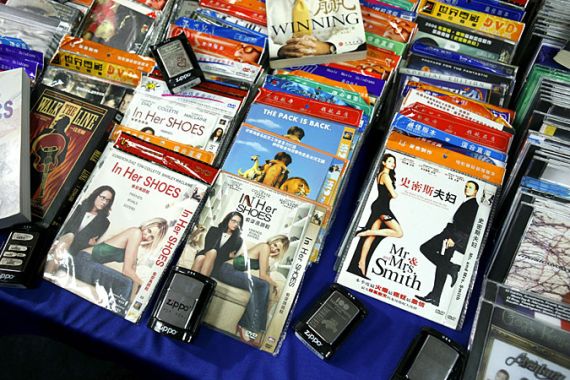
SOPA: Freedom or profits?
As proposed US anti-piracy laws spark a legal storm, we ask if they are compatible with internet freedoms.
Thousands of websites have staged an online protest against proposed anti-piracy laws in the US.
|
“Unfortunately, the way that [the legislation is] proposed is probably going to result in an internet that does not function. It’s like somebody who’s got a piece of stolen property so instead of arresting them and getting it back you blow up their house.” – Wayne Rash, a technology author |
Supporters of the legislation – the Stop Online Piracy Act (SOPA) – say action is needed to stop online piracy and copyright infringement.
Keep reading
list of 4 itemsCould shipping containers be the answer to Ghana’s housing crisis?
Are Chinese electric vehicles taking over the world?
First pig kidney in a human: Is this the future of transplants?
There is a similar bill called the Protect Intellectual Property Act (PIPA) in the US Senate.
Both laws are designed to stop the illegal download of copyrighted material or content from the internet or activities that infringe US intellectual property rights.
But opponents say the proposed laws curb freedom of speech and threaten the internet itself.
|
“These laws are necessary because the freedom of the internet is misused by a lot of people who make millions, billions of dollars on the back of the content industry, not only the movie, music and software and most recently also the print industry. It’s not a question between good and evil, but about different industries protecting their profits.” – Andreas Manak, an intellectual property lawyer |
More than 7,000 internet sites went offline on Wednesday, in a mass protest affecting millions of users across the world.
The 24-hour shutdown was in opposition to the SOPA bill, which is currently being debated by the US Congress.
The bill is the product of years of lobbying by the music and film industries, who claim that piracy is robbing them of profits.
Are proposed anti-piracy laws compatible with internet freedoms?
Inside Story, with presenter Teymoor Nabili, discusses with guests: Wayne Rash, a writer and former editor of the online technological news site eWeek and author of Politics on the Nets; Julian Sanchez, a research fellow at the Cato Institute; and Andreas Manak, a lawyer specialising in intellectual property, the legal advisor to the Austrian Anti-Piracy Association and representative of a number of Austrian film companies.
|
“If you look at the output of the movie and music industries, the number of films and albums released every year, at their revenues, this is not the picture of an industry that’s dying. In the time that we’ve seen the rise of online piracy these industries have been as healthy as ever. These measures are not going to work. It is legitimate sites that are wrongly targeted and the threat to innovation that represents that will be the real effect of the bill.” Julian Sanchez, a research fellow at the Cato Institute |
The Stream talked to Alex Ohanian, the co-founder of Reddit, and Sandra Aistars, the executive director of the Copyright Alliance, about this and here is some of what they had to say:
“The entire notion of creating something that people love and succeeding from it is threatened by these bills because they were written by lobbyists and not technologists.”
“There are not many industries in America right now that are as healthy, as vibrant and creating as many jobs as the internet-tech industry and we are threatened by this lobbyist-written legislation.”
Alex Ohanian, the co-founder of Reddit and an opponent of the bills. Click here to hear more of his views.
“We have more than 11 million artists across the United States. They are not just big movie industry folks. We’re talking about indie artists, about indie filmmakers, indie musicians, authors who write from their own homes and the bill is very, very important to these people.”
Sandra Aistars, the executive director of the Copyright Alliance and a proponent of the bills. Click here to hear more of her views.